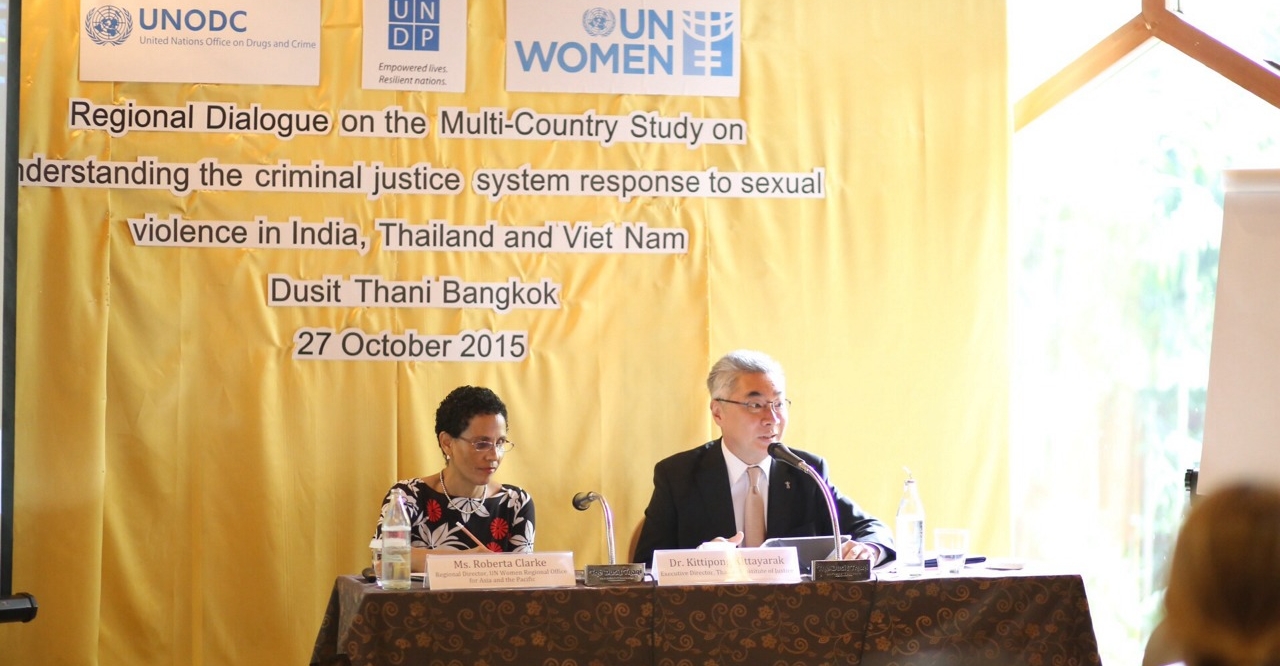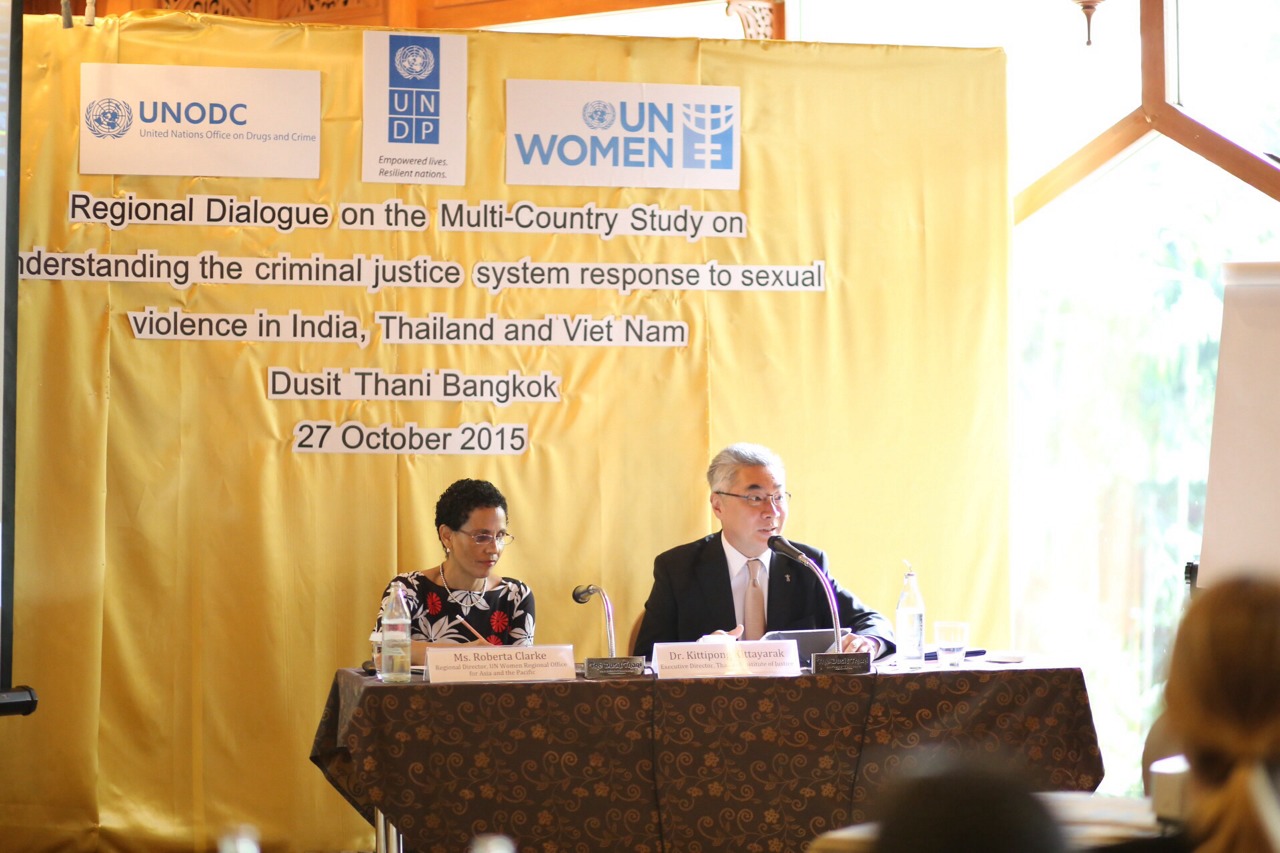
On 27th October 2015, Representatives from Thailand Institute of Justice (TIJ) attended the “Regional Dialogue on the Multi-Country Study on Understanding the criminal justice system response to sexual violence in India, Thailand and Vietnam”, hosted by UNODC, UNDP and UN Women at Dusit Thani Hotel Bangkok. Dr. Kittipong Kittiyarak, Executive Director of TIJ, also delivered special address to participants.
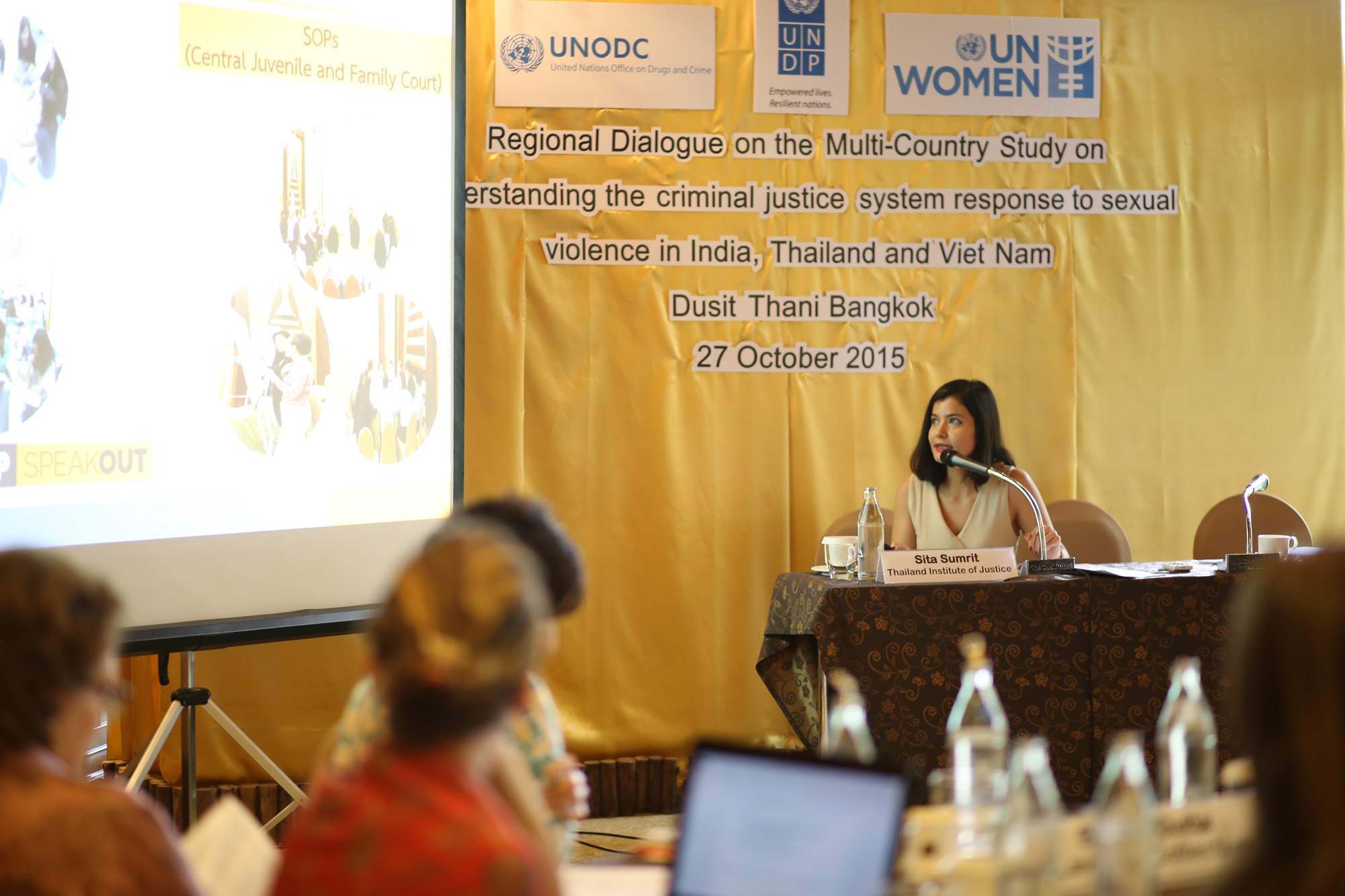
This dialogue focuses on the Multi-Country Study on Understanding the criminal justice system response to sexual violence in India, Thailand and Vietnam. National research teams from the three countries presented their research findings and recommendations at the dialogue for further discussion and development into regional and national policies. TIJ plays a vital role in this research in Thailand as Dr. Sita Sumrit, Advisor to the Women and Children Empowerment Project led the country research team as head of research.
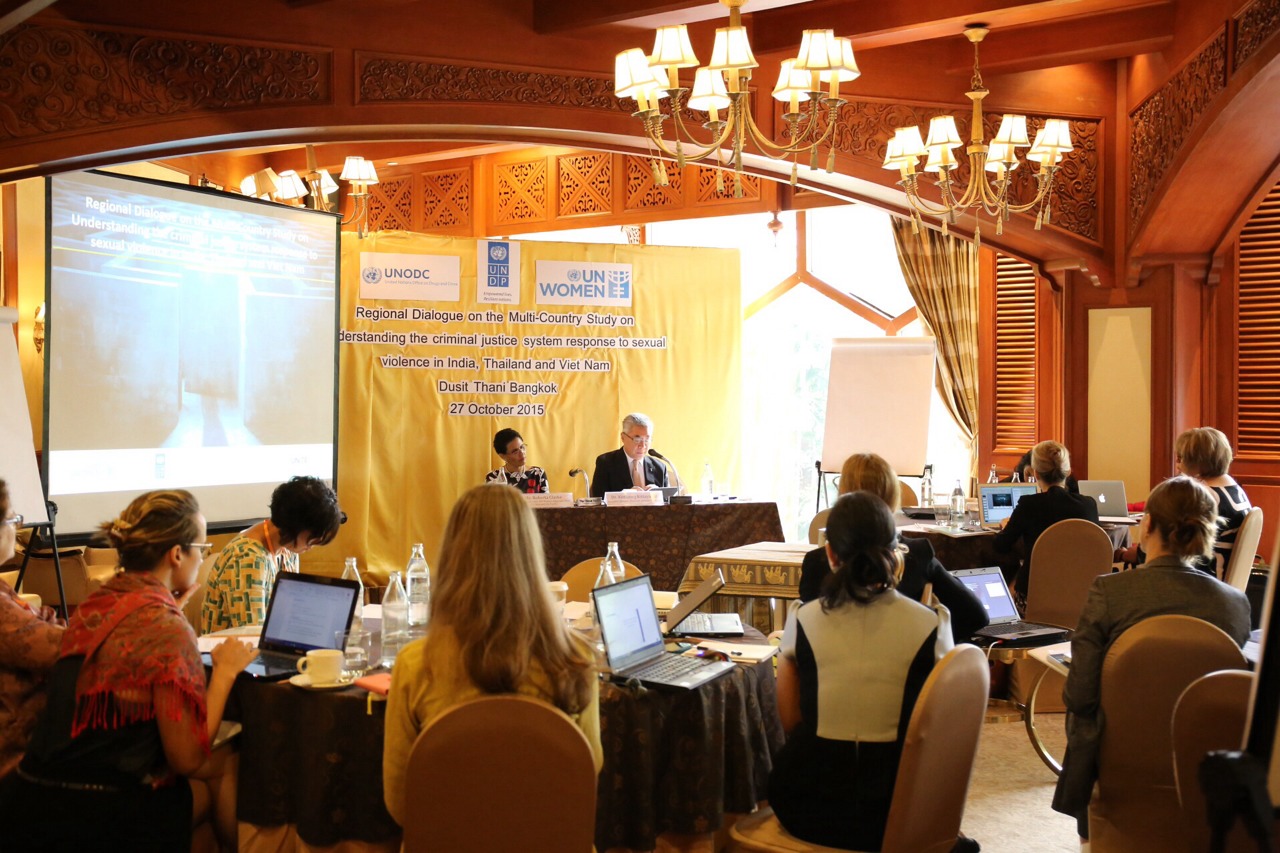
The result of this research shows that the key challenge to women’s access to justice in case of sexual violence in Thailand is that cases are filtered out at every stage of justice system (attrition). The main factors contributing to attrition are the lack of gender sensitivity among practitioners in criminal justice system for example rape victims questioned too many times on the incident, which is detrimental to their mental well-being. Further rape cases must be reported within 3 month-period and the definition of “consent” as found in criminal code remains unclear. In this regard, TIJ applies the results of this research to develop guidelines for practitioners to enhance women’s access to justice, such as Standard Operating Procedures (SOP) for the Central Juvenile and Family Court to treat female victims and offenders with awareness of gender sensitivity.
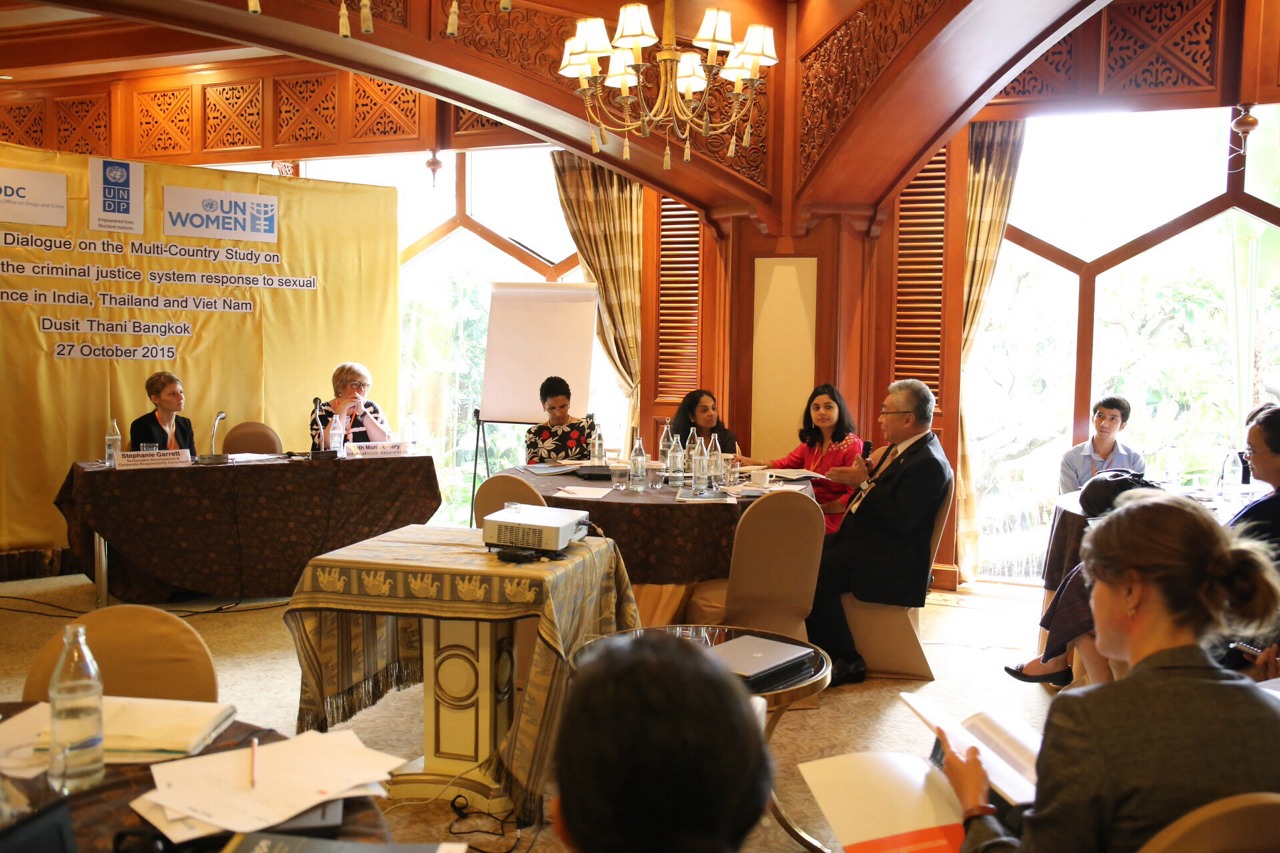
ยอมรับนโยบายความเป็นส่วนตัว
เว็บไซต์นี้มีการใช้คุกกี้ (cookie) เพื่อพัฒนาประสบการณ์การใช้งานและเพิ่มความพึงพอใจต่อการได้รับการเสนอข้อมูลและเนื้อหาต่างๆ ให้ดียิ่งขึ้น โดยการเข้าใช้งานเว็บไซต์นี้ถือว่าท่านได้อนุญาตให้เราใช้คุกกี้ตามนโยบายคุกกี้ของเรา
More Detail


